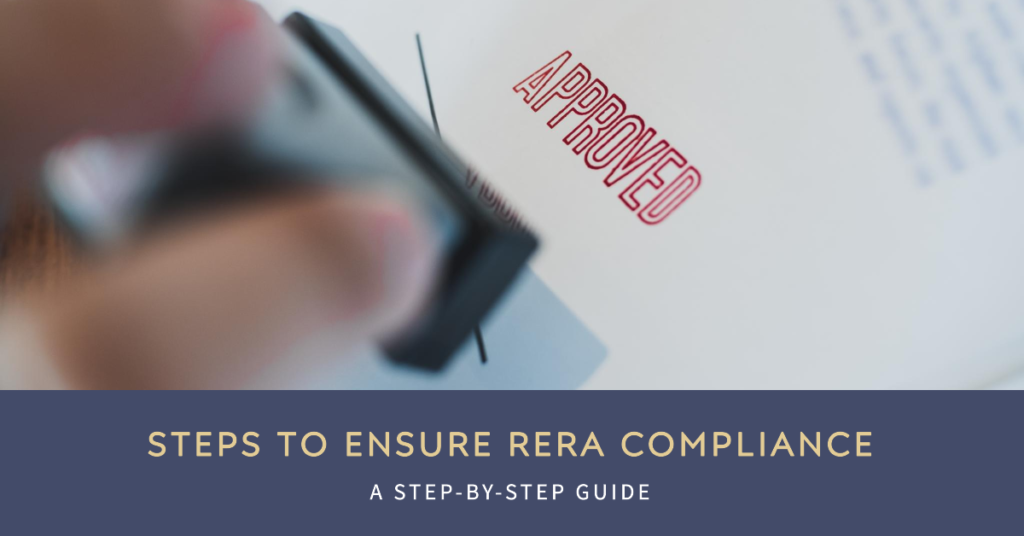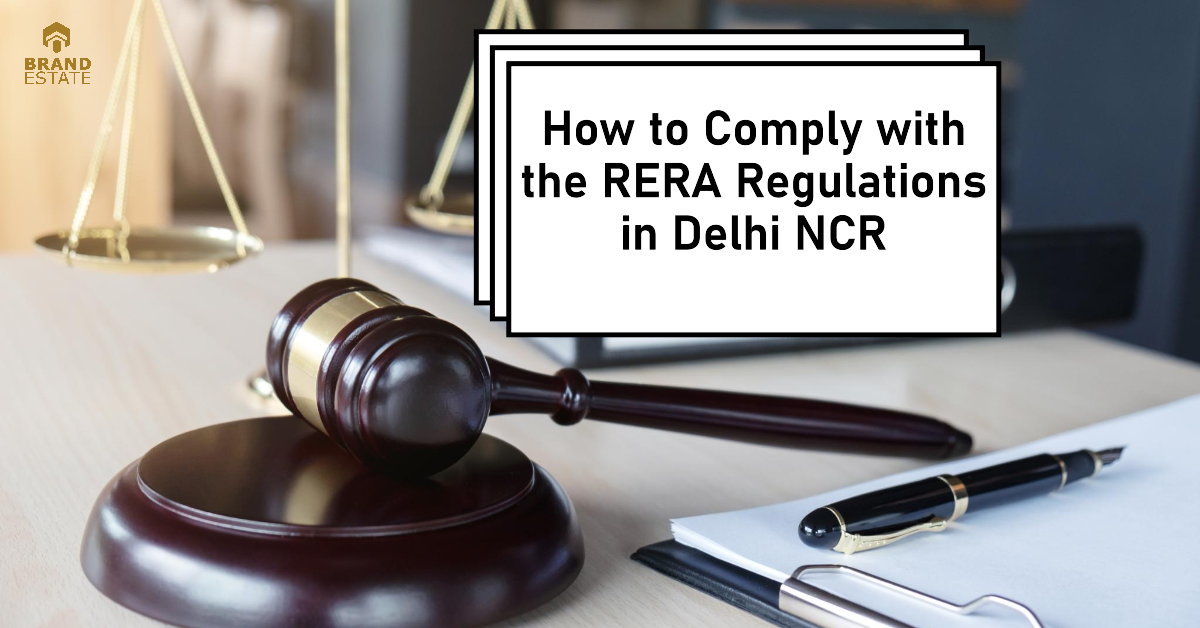Welcome to BrandEstate.in, your dedicated partner in your real estate journey within the bustling Delhi National Capital Region (NCR). In this blog post, we embark on an enlightening journey to unravel the intricate realm of compliance with RERA (Real Estate Regulatory Authority) regulations. Understanding and adhering to RERA regulations in Delhi NCR is fundamental for property developers and buyers alike, ensuring transparency and accountability in the real estate market.
1: The Importance of RERA Compliance
In the ever-evolving world of real estate, compliance with RERA regulations is not just a legal requirement but a cornerstone of trust and transparency. Compliance plays a pivotal role in safeguarding the interests of all stakeholders—developers, buyers, and the real estate market itself.
2: Understanding RERA Regulations
Before delving into the specifics of compliance, let’s gain a comprehensive understanding of the key regulations mandated by the Real Estate (Regulation and Development) Act, 2016 (RERA). These regulations are designed to bring order, fairness, and accountability to the real estate sector:
Mandatory Project Registration
RERA mandates that developers register their projects before advertising or selling them. This ensures that every project is accounted for and monitored.
Project Details Disclosure
Developers are required to disclose all pertinent project details, including layout plans, project timelines, and financial information. This transparency builds trust with buyers.
Compliance with Approved Plans
Developers must adhere to the approved project plans throughout construction, ensuring that the promises made to buyers are kept.
Use of Funds
RERA regulations dictate that the funds collected from buyers for a specific project must be used only for that project. This prevents misuse of funds and promotes financial transparency.
3: Compliance Timelines and Deadlines
Understanding the timelines and deadlines associated with RERA compliance is essential. Here are some critical points:
Project Registration Deadline
Developers must register their projects with RERA before advertising or selling them. The deadline ensures that projects are brought under regulatory oversight promptly.
Ongoing Compliance
Compliance is not a one-time task. Developers must provide regular updates on project progress and financial disclosures throughout the project’s development and post-completion phases.

4: Steps to Ensure RERA Compliance
Ensuring compliance with RERA regulations involves a series of steps that developers must follow diligently:
4.1: Project Registration
Understanding the Process
The process begins with project registration. Developers need to submit the necessary documents and pay the required fees.
Importance of Registration
Highlight the significance of timely project registration and the consequences of non-registration.
4.2: Disclosure of Project Details
Completing Project Details Disclosure
Explain how developers can complete the disclosure of project details accurately. Accuracy and transparency are vital.
Building Trust
Emphasize how these disclosures build trust with potential buyers, who can make informed decisions.
4.3: Managing Funds Transparently
Separate Bank Accounts
Describe the requirement for maintaining separate bank accounts for each project. Funds collected from buyers must be used exclusively for the designated project.
Tips for Fund Management
Provide practical tips on managing project funds transparently, which is crucial for compliance.
5: Consequences of Non-Compliance
Emphasize the potential consequences of non-compliance with RERA regulations. Non-compliance can result in penalties, legal actions, and damage to the developer’s reputation.
6: Facts and Figures: RERA Compliance in Delhi NCR
Let’s delve into some factual data and figures related to RERA compliance in Delhi NCR. These statistics shed light on the impact and effectiveness of RERA in the region:
Number of Registered Projects
Highlight the number of projects that have been successfully registered under RERA in Delhi NCR.
Penalties Imposed
Discuss any penalties that have been imposed on developers for non-compliance.
Dispute Resolution
Provide insights into how RERA has facilitated dispute resolution, ensuring fair outcomes for buyers and developers.
7: Benefits of RERA Compliance
RERA compliance offers numerous benefits for both developers and buyers:
Transparency
Compliance fosters transparency in the real estate sector, ensuring that all stakeholders have access to accurate information about projects.
Trust-Building
Compliance builds trust between developers and buyers. Buyers can invest with confidence, knowing that their rights are protected.
Legal Protection
Compliance safeguards developers from legal complications, ensuring a smooth project development process.
8: Conclusion: A Transparent and Accountable Real Estate Future
In conclusion, RERA compliance is the cornerstone of a transparent and accountable real estate future in Delhi NCR. By diligently navigating the regulatory landscape, developers contribute to a thriving and trustworthy real estate market, while buyers can invest with confidence, knowing their rights are protected.
Additional Resources
RERA stands for Real Estate (Regulation and Development) Act, 2016. It is an Act of the Parliament of India that regulates and promotes the real estate sector in India.
The RERA website for Delhi NCR
The RERA guidelines for Delhi NCR
The contact information for the regulatory authorities in Delhi NCR
At BrandEstate.in, we are committed to providing you with the knowledge and insights needed for a successful and transparent real estate experience. Trust us for your real estate RERA needs, and let’s build a brighter real estate future together.




